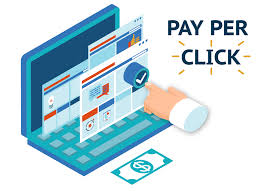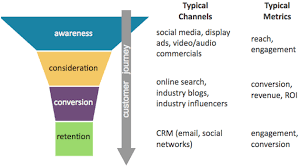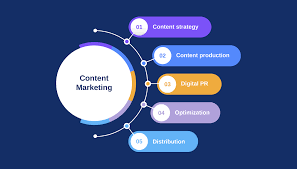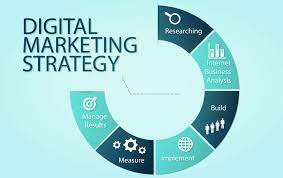The Power of Pay-Per-Click Advertising
Pay-per-click (PPC) advertising is a powerful digital marketing strategy that allows businesses to drive targeted traffic to their websites by paying for ad placements on search engines and other platforms. With PPC, advertisers only pay when users click on their ads, making it a cost-effective way to reach potential customers and generate leads.
How Does PPC Work?
In a PPC campaign, advertisers bid on specific keywords relevant to their target audience. When users search for these keywords on search engines like Google, Bing, or social media platforms, the ads are displayed prominently in the search results or as sponsored content. Advertisers set a budget for their campaigns and only pay when users click on their ads.
The Benefits of PPC Advertising
Targeted Reach: PPC allows businesses to target specific demographics, locations, and interests, ensuring that ads reach the right audience.
Cost-Effective: With PPC, advertisers have control over their budget and can set limits on how much they are willing to spend per click or per day.
Measurable Results: PPC campaigns provide detailed analytics that allow advertisers to track performance metrics such as clicks, impressions, conversions, and ROI.
Immediate Visibility: Unlike organic search engine optimization (SEO), which can take time to see results, PPC ads provide instant visibility and can drive traffic to websites quickly.
Key Strategies for Successful PPC Campaigns
Keyword Research: Identify relevant keywords that your target audience is likely to use when searching online.
Compelling Ad Copy: Create engaging ad copy that entices users to click on your ads and visit your website.
Landing Page Optimization: Ensure that your landing pages are user-friendly, relevant to the ad content, and designed to encourage conversions.
Continuous Monitoring and Optimization: Regularly monitor the performance of your PPC campaigns and make adjustments based on data insights to improve results over time.
In Conclusion
Pay-per-click advertising is a versatile marketing tool that can help businesses increase brand awareness, drive website traffic, and boost sales. By implementing strategic PPC campaigns tailored to your business goals, you can effectively reach your target audience and achieve measurable results in the competitive digital landscape.
9 Essential FAQs About Pay-Per-Click Advertising for Your Business
- What is pay-per-click advertising?
- How does pay-per-click advertising work?
- What are the benefits of pay-per-click advertising?
- How much does pay-per-click advertising cost?
- Which platforms offer pay-per-click advertising services?
- What is the difference between PPC and SEO?
- How can I measure the success of my PPC campaigns?
- What are some common mistakes to avoid in PPC advertising?
- Is it worth investing in pay-per-click advertising for my business?
What is pay-per-click advertising?
Pay-per-click (PPC) advertising is a digital marketing strategy where advertisers pay a fee each time their ad is clicked. This model allows businesses to display their ads on search engines, social media platforms, and other websites, targeting specific keywords and demographics. With PPC advertising, companies can reach their target audience effectively and drive traffic to their websites. By only paying for actual clicks on their ads, businesses can control their advertising costs and measure the performance of their campaigns through detailed analytics.
How does pay-per-click advertising work?
Pay-per-click advertising works by allowing businesses to bid on specific keywords related to their target audience. When users search for these keywords on search engines or social media platforms, the ads of advertisers who have bid on those keywords are displayed. Advertisers only pay when users click on their ads, hence the name “pay-per-click.” This model ensures that businesses can reach a relevant audience and drive traffic to their websites effectively. By setting budgets and targeting options, advertisers can control costs and tailor their campaigns to attract potential customers who are actively searching for products or services related to their business.
What are the benefits of pay-per-click advertising?
Pay-per-click (PPC) advertising offers a range of benefits for businesses looking to enhance their online presence and reach their target audience effectively. One key benefit of PPC advertising is its targeted reach, allowing advertisers to tailor their campaigns to specific demographics, locations, and interests. Additionally, PPC is a cost-effective marketing strategy as advertisers only pay when users click on their ads, providing control over budget allocation. The measurable results provided by PPC campaigns enable businesses to track performance metrics such as clicks, impressions, conversions, and return on investment (ROI), helping them make data-driven decisions to optimise their campaigns for success.
How much does pay-per-click advertising cost?
The cost of pay-per-click advertising can vary depending on several factors, including the competitiveness of the keywords you are targeting, your industry, and the platform you choose to advertise on. Advertisers have control over their budget and can set limits on how much they are willing to pay per click or per day. Additionally, the effectiveness of your PPC campaign in generating clicks and conversions will also influence the overall cost. It is essential to carefully plan your budget and strategy to maximise the return on investment from your pay-per-click advertising efforts.
Which platforms offer pay-per-click advertising services?
Various digital platforms offer pay-per-click (PPC) advertising services to businesses looking to reach their target audience effectively. Some of the most popular platforms for PPC advertising include Google Ads, which allows advertisers to display ads on Google’s search engine results pages and across its extensive network of partner websites. Additionally, social media platforms like Facebook, Instagram, and LinkedIn offer robust PPC advertising solutions that enable businesses to target specific demographics and interests. Other platforms such as Microsoft Advertising (formerly Bing Ads) and Amazon Advertising also provide opportunities for businesses to run PPC campaigns tailored to their marketing objectives. With a diverse range of platforms offering PPC services, businesses can choose the most suitable options based on their target audience and marketing goals.
What is the difference between PPC and SEO?
When comparing pay-per-click (PPC) advertising and search engine optimization (SEO), it’s important to understand the fundamental differences between the two digital marketing strategies. PPC involves paying for ad placements on search engines and other platforms, with advertisers only charged when users click on their ads. In contrast, SEO focuses on optimizing website content and structure to improve organic search engine rankings, without direct payment for clicks. While PPC offers immediate visibility and control over ad placements and budgets, SEO is a long-term strategy that aims to increase organic traffic and enhance website credibility. Both PPC and SEO play complementary roles in a comprehensive digital marketing strategy, each offering distinct benefits for businesses looking to enhance their online presence and reach their target audience effectively.
How can I measure the success of my PPC campaigns?
Measuring the success of your PPC campaigns is essential to understanding their effectiveness and making informed decisions to optimize performance. Key metrics to consider include click-through rate (CTR), conversion rate, cost per click (CPC), return on ad spend (ROAS), and overall return on investment (ROI). By tracking these metrics and analysing the data, you can gain insights into which keywords, ads, and targeting strategies are driving results. Additionally, tools like Google Analytics and platform-specific analytics dashboards provide valuable data to evaluate campaign performance and make adjustments to improve outcomes. Regular monitoring and analysis of these metrics will help you gauge the success of your PPC campaigns and refine your strategies for better results.
What are some common mistakes to avoid in PPC advertising?
When it comes to PPC advertising, there are several common mistakes that advertisers should avoid to maximise the effectiveness of their campaigns. One key mistake is neglecting thorough keyword research, which can lead to targeting the wrong audience or overspending on irrelevant keywords. Another mistake is failing to continuously monitor and optimise campaigns based on performance data, missing out on opportunities to improve ROI. Additionally, not having clear conversion tracking in place can make it challenging to measure the success of PPC efforts accurately. By avoiding these pitfalls and implementing best practices in PPC advertising, businesses can enhance their online visibility and drive meaningful results.
Is it worth investing in pay-per-click advertising for my business?
Investing in pay-per-click advertising for your business can be a worthwhile strategy to consider. With PPC, you have the opportunity to reach a targeted audience, drive relevant traffic to your website, and potentially generate leads and conversions. The cost-effectiveness of PPC, coupled with the ability to track and measure results in real-time, makes it a valuable tool for businesses looking to enhance their online presence and increase brand visibility. By carefully planning and executing PPC campaigns tailored to your specific goals and target market, you can maximise the benefits of pay-per-click advertising for your business.







